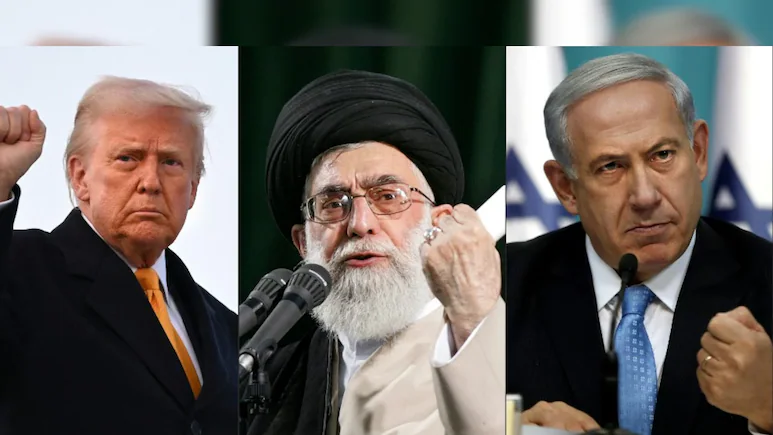In a dramatic escalation of religious and political rhetoric, Iran’s top Shiite cleric, Grand Ayatollah Naser Makarem Shirazi, has issued a fatwa — a religious decree — condemning U.S. President Donald Trump and Israeli Prime Minister Benjamin Netanyahu as “enemies of God.” The decree comes in the wake of a 12-day war between Israel and Iran and follows a series of deadly military exchanges involving American forces.
The fatwa, announced through Iranian state-linked Mehr News Agency, calls on Muslims across the globe to unite and oppose both leaders for what it describes as threats against the Islamic Republic and its supreme leadership.
“Any person or regime that threatens the Leader or Marja (May God forbid) is considered a warlord or a mohareb,” declared Ayatollah Makarem. Under Iranian law, a mohareb—or one who wages war against God—faces the gravest of punishments, including execution, crucifixion, limb amputation, or exile.
The fatwa further states, “Any cooperation or support for that enemy by Muslims or Islamic states is haram (forbidden). It is necessary for all Muslims around the world to make these enemies regret their words and mistakes.”
It also promises divine reward for Muslims who endure hardship while opposing those labeled as enemies, saying, “They will be rewarded as fighters in the way of God, God willing.”
Background of the Fatwa
The decree follows a violent conflict that began on June 13, when Israel launched targeted airstrikes on Iranian territory. The strikes reportedly killed several high-ranking military officials and nuclear scientists. In response, Iran fired ballistic missiles at Israeli cities, marking one of the most direct confrontations between the two nations in recent history.
Tensions intensified when the United States joined Israeli forces in a coordinated assault on three of Iran’s nuclear facilities. Iran retaliated with missile strikes on a U.S. military base in Qatar, escalating regional fears of a broader war.
Understanding a Fatwa
A fatwa is an authoritative legal ruling issued by a senior Islamic scholar known as a Marja. While not legally binding in secular terms, such religious decrees carry significant weight across the Muslim world, especially among Shiite communities. They often guide the behavior of Islamic governments and believers alike.
Fatwas can cover a wide range of issues, from everyday religious observances to extreme political or military declarations, such as this one.
Historical Context: Fatwas as Political Tools
This is not the first time Iranian clerics have used a fatwa to call for violent action. One of the most infamous examples occurred in 1989, when Supreme Leader Ayatollah Ruhollah Khomeini issued a fatwa against author Salman Rushdie. The decree, sparked by Rushdie’s novel The Satanic Verses, called for his assassination and led to global controversy. The fatwa prompted violent attacks, including the murder of a Japanese translator and assaults on the book’s publishers.
Rushdie lived under constant threat for decades and was the target of multiple assassination attempts. In 2023, he was severely injured in a stabbing at a public event in upstate New York, resulting in the loss of an eye.
Geopolitical Implications
This latest fatwa could have major implications for the already fragile stability of the Middle East. With the U.S. and Israel actively involved in military operations against Iran, and now with one of Iran’s highest religious authorities declaring them divinely opposed, the conflict risks taking on a more religiously charged and globally polarizing tone.
As both American and Israeli leaders remain defiant in their stance against Iran’s nuclear ambitions, Iran continues to deny it is pursuing nuclear weapons, insisting its nuclear program is for peaceful purposes.
Conclusion
The fatwa by Grand Ayatollah Makarem Shirazi marks a severe intensification of both religious and geopolitical hostilities. While fatwas do not equate to official government policy, they often reflect and influence the direction of Iranian state actions. As tensions escalate, the international community watches closely, bracing for potential repercussions across the region and beyond.



